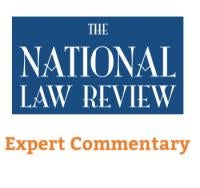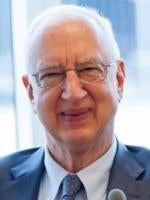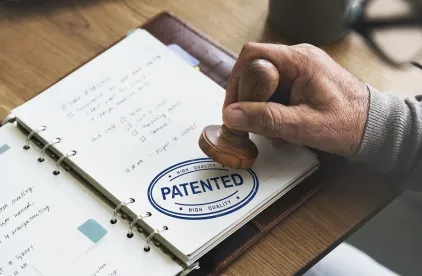Under the U.S. Constitution, a patent conveys an "exclusive right" to inventors so they can prevent others from stealing their inventions. And since the enactment of the Patent Act of 1790, the law has deemed patents to be a form of personal property and specifically provided for injunctive relief, a court order stopping a proven infringer from continuing to use or sell someone else’s invention. Yet, today in the United States, despite this constitutional mandate and grounding in law, many patent holders no longer have exclusive rights to their inventions, nor the ability to obtain iinjunctions.
For much of our country’s history, permanent injunctions were the norm once patent infringement and validity were proven at trial by the patent owner. And getting an injunction depended on facts, not the patent owner’s business model – for example, whether they manufactured or licensed their invention. The practice was stable for all of that time – until recently.
In 2006, in the Supreme Court’s eBay Inc. v. MercExchange, L.L.C. decision, the Court upended this settled practice, ruling that injunctions should not be automatically issued in patent cases and clarifying that courts must apply a four-part test to determine whether an injunction should be granted. The opinion of the Court, authored by Justice Thomas, said little more than that the four factors should determine when an injunction is allowed. However, two concurring opinions expanded on the role of injunctions in patent cases – one, written by Chief Justice Roberts, defended the historic practice of allowing injunctions in most cases, while the other, by Justice Kennedy, pushed in the opposite direction, basing the injunction determination on who the patent owner was and how they used the patent.
For some years after, the pattern of injunction grants changed little. But eventually, it shifted greatly, as lower courts began to make injunction determinations based primarily on the patent owner’s identity. Those who manufacture products continued to get injunctions, while those who chose to license their patents instead, no longer did. This misapplication of the ruling by lower courts has become so widespread that it is now almost impossible for inventors who license their patents to obtain an injunction, even in the face of proven infringement.
It was almost as if the Kennedy minority concurrence became the majority opinion. And the Roberts concurrence was mostly ignored by the lower courts – even though that opinion highlighted the settled historical practice of granting injunctions for most cases of infringement.
It may not be entirely coincidental that such an outcome was implored by a massive lobbying and public relations campaign conducted by a group of Big Tech mega corporations, mostly based in Silicon Valley. In an effort to reduce patent licensing fees for using technology created by other inventors in their products, these Big Tech companies set out to demonize the patent licensing business model and undermine the ability of inventors to defend patents against infringement. Among their asks, they specifically urged that injunctions should be largely limited to companies "practicing" their inventions by making products and denied to those following the licensing business model, so-called "non-practicing entities," or NPEs.
Well, this campaign and its complaints about patent licensing, though lacking in evidence, apparently caught the eye of Justice Kennedy, who wrote in his concurring eBay opinion: "An industry has developed in which firms use patents not as a basis for producing and selling products but, instead, primarily for obtaining licensing fees… For these firms, an injunction, and the potentially serious sanctions from its violation, can be employed as a bargaining tool to charge exorbitant fees to companies that seek to buy licenses to practice the patent."
This line of reasoning overlooks the fact that the patent licensing business model is not a new phenomenon in the commercialization of patented innovation, but has been around since our country’s founding and has served a key role in advancing U.S. innovation. Iconic American inventors, such as Thomas Edison, Alexander Graham Bell, the Wright Brothers, Charles Goodyear and Elias Howe Jr., all licensed their patented inventions to others, who then manufactured the final product and brought it to the masses. And today, many of our nation’s best innovators license their inventions, including universities, hospitals, startups, engineering firms and independent inventors.
What is most striking is that while the U.S. no longer provides injunctive relief to many patent holders, our competitors in Europe and Asia, including China, routinely grant injunctions in similar cases of patent infringement. This is undermining our competitiveness as innovative companies in the U.S. and around the world have an incentive to conduct R&D and patent inventions outside the U.S., where patent protections are now stronger.
Fortunately, Senator Chris Coons (D-DE) and Representative Steve Stivers (R-OH) are sponsoring bipartisan legislation, known as the STRONGER Patents Act, that would restore the traditional right of injunctions to all patent owners, including those who license their innovations. If we have learned nothing else from the Covid-19 crisis, it is the need to incentivize all the technological advances we can, especially the development of new human health technologies. That incentive system works best when all patent owners can equally and fairly use their constitutional “exclusive right” to their innovations. Let's hope that insight will help jumpstart the legislative advance of the STRONGER Patents Act or other measures to strengthen patent rights and restore injunctive relief.
The opinions and views stated herein are the sole opinions of the author and do not reflect the views or opinions of the National Law Review or any of its affiliates.




 />i
/>i

